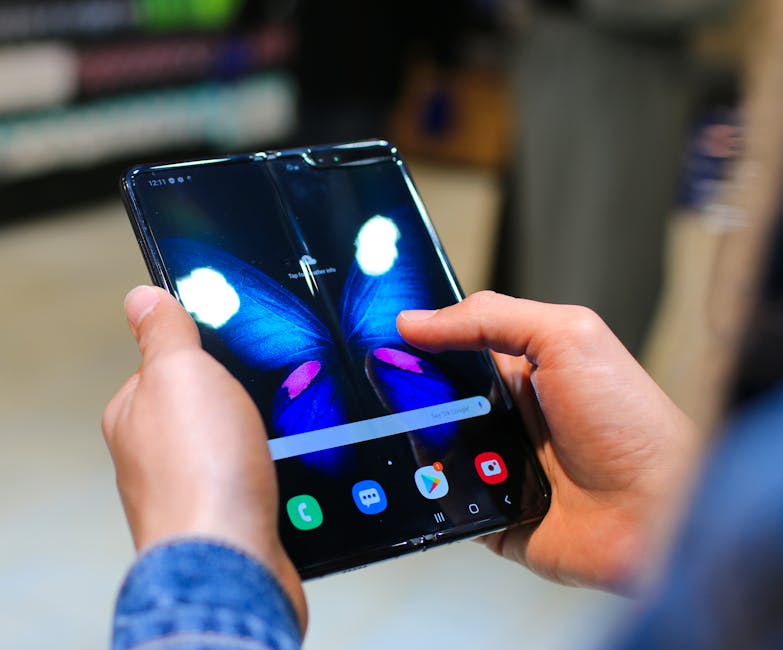Book trends in 2025 are shaping up to transform how we read, share, and experience literature in profound ways. As we move deeper into the year, the literary landscape continues to evolve with exciting new developments that reflect broader cultural shifts and technological innovations. From the rise of specialized subgenres to more sustainable reading practices, 2025 is proving to be a pivotal year for book lovers everywhere.
The reading community is witnessing a fascinating evolution as niche interests gain mainstream attention and digital platforms create new opportunities for connection. Whether you’re a casual reader or a dedicated bibliophile, understanding these emerging book trends can help you discover new favorites and engage with literature in fresh, meaningful ways.
The Rise of Niche Literary Subgenres

Photo by RF._.studio _ on Pexels
One of the most notable book trends of 2025 is the continued fragmentation of traditional genres into highly specialized subgenres that cater to specific reader interests. While romantasy (romance fantasy) and cozy fantasy gained significant traction in previous years, 2025 is seeing even more specialized categories emerge and flourish.
Climate fiction (cli-fi) has moved from the fringes to become a major literary force, with stories that explore the consequences of climate change in imaginative yet often eerily plausible futures. These narratives range from dystopian warnings to more hopeful visions that imagine how humanity might adapt to environmental challenges.
Solarpunk represents another ascendant subgenre, offering optimistic visions of sustainable futures powered by renewable energy and characterized by harmonious relationships between technology and nature. Unlike the grim aesthetics of cyberpunk, solarpunk literature presents hopeful alternatives that readers increasingly crave in uncertain times.
We’re also seeing the rise of highly specific romance subgenres beyond the already popular categories. Profession-specific romances featuring characters in unique occupations, from archaeologists to zoologists, are finding dedicated readerships. Similarly, hyper-specific settings—from small-town bakeries to remote research stations—are becoming genres unto themselves.
This trend toward specialization reflects readers’ desires for stories that speak directly to their particular interests and experiences. Publishers and independent authors alike are responding by creating content for these micro-audiences, knowing that passionate niche communities often translate to dedicated readership.
Digital Community Evolution and Reader Connections

Photo by August de Richelieu on Pexels
The way readers connect with each other is undergoing a significant transformation in 2025. While platforms like Goodreads and Instagram’s bookstagram community have been staples for years, we’re now seeing more specialized and interactive digital spaces emerging specifically for book lovers.
Online book club platforms such as Fable are experiencing explosive growth, allowing readers to create their own themed reading groups and connect with others who share their specific literary interests. These platforms are becoming increasingly sophisticated, offering features like synchronized reading experiences, author Q&A sessions, and integrated annotation tools.
Virtual reading events have evolved from pandemic-era necessities to preferred gathering methods for many book communities. In 2025, these events frequently feature immersive elements, such as themed backgrounds, interactive polls, and even virtual reality components for those with access to the technology.
Book content creators are also finding new ways to engage with audiences beyond traditional reviews and recommendations. Interactive storytelling experiences, collaborative reading challenges, and cross-platform narrative experiences are becoming increasingly common, blurring the lines between content creation and community building.
Perhaps most significantly, we’re seeing the emergence of decentralized book communities that exist across multiple platforms simultaneously. Rather than being tied to a single service, these fluid communities maintain connections through shared hashtags, cross-platform events, and distributed content creation, making them more resilient to platform changes or corporate decisions.
Sustainability in Reading Habits

Photo by cottonbro studio on Pexels
Environmental consciousness has firmly established itself in the reading community in 2025, influencing everything from purchasing decisions to content preferences. Readers are increasingly mindful of the environmental impact of their hobby and are adopting more sustainable practices.
The thoughtful acquisition of physical books has become a defining characteristic of conscientious readers. Rather than accumulating large collections of unread volumes, many are adopting a more deliberate approach to purchasing, focusing on books they genuinely intend to read or keep long-term. This shift is reflected in content creation as well, with the once-popular massive book haul videos giving way to more curated, intentional showcases.
Library usage has seen a significant resurgence, with digital lending services making access more convenient than ever. Many readers are rediscovering the joy of borrowing rather than buying, appreciating both the environmental benefits and the community aspect of shared resources.
The secondhand book market is thriving in 2025, with dedicated apps and online communities facilitating the exchange, sale, and donation of previously owned books. These platforms often incorporate social elements, allowing users to share the stories behind their books and create connections through the exchange process.
Publishers are responding to this trend by highlighting their environmental credentials, with many adopting more sustainable production methods and materials. Books printed on recycled paper using plant-based inks, with carbon-neutral shipping options, are increasingly common and prominently marketed to environmentally conscious readers.
Integration of Fitness and Reading

One of the most unexpected book trends of 2025 is the growing intersection between fitness and reading cultures. What began as a niche interest has developed into a significant movement that combines intellectual and physical wellness.
Audiobook listening during exercise has evolved beyond casual multitasking into structured fitness-reading programs. Specialized apps now offer workout routines designed to pair perfectly with specific audiobooks, with intensity levels that match the narrative arc of the story. Some even feature voice actors reading at tempos that complement different exercise phases.
Walking book clubs have gained tremendous popularity, with members meeting regularly to discuss their current read while getting steps in. These groups often use tracking apps to log collective miles “traveled” through books set in different locations, creating a virtual literary journey that parallels their physical activity.
Publishers have recognized this trend and are creating content specifically for the fitness-reading market. This includes thematic workout companions to popular books, fitness challenges based on literary adventures, and even fiction written specifically to be consumed while exercising, with pacing and chapter lengths optimized for workout sessions.
The mind-body connection emphasized in this trend reflects a holistic approach to wellness that many readers find appealing. Rather than compartmentalizing intellectual and physical activities, this integration allows for a more balanced lifestyle where literature enhances exercise and vice versa.
Evolution of Book Formats and Reading Experiences

Photo by Photo By: Kaboompics.com on Pexels
The physical and digital forms that books take continue to evolve in fascinating ways in 2025, with innovations that enhance the reading experience across different formats and contexts.
Interactive e-books have moved beyond simple hyperlinks to incorporate more sophisticated elements. Many now feature ambient soundscapes that match the setting of each scene, subtle animation effects that enhance emotional moments, and even responsive elements that adapt to reading speed or time of day.
Physical books are experiencing their own renaissance, with publishers experimenting with innovative formats and materials. Books with temperature-sensitive inks that reveal hidden text, scented pages that complement the narrative, and even embedded technology that connects physical books to digital companions are becoming more common in specialty publishing.
The audiobook experience has been transformed by advances in production techniques. Full-cast performances with immersive sound design are increasingly the norm rather than the exception, and some productions now offer multiple narrative perspectives that listeners can switch between, allowing for different experiences of the same story.
Hybrid reading experiences that combine multiple formats are gaining popularity. These might include physical books with companion apps that provide additional content when pointed at specific pages, or subscription services that seamlessly sync progress between e-book, audiobook, and even physical book versions of the same title.
These format innovations reflect a growing understanding that different reading contexts call for different approaches, and that readers benefit from having multiple ways to engage with the same content depending on their situation and preferences.
Artificial Intelligence and Literary Creation

Photo by Zana Latif on Pexels
The relationship between artificial intelligence and literature has evolved significantly by 2025, creating both challenges and opportunities for the publishing industry and readers alike.
AI-assisted writing tools have become sophisticated enough to serve as genuine collaborators for human authors. Rather than simply generating content, these tools help writers overcome blocks, suggest alternative narrative paths, and even identify potential plot holes or character inconsistencies. Many published authors now openly discuss their AI collaborators in acknowledgments.
Personalized reading experiences powered by AI are becoming increasingly common. These range from subtle adaptations of existing works—such as adjusting vocabulary levels or cultural references to match reader preferences—to more dramatic customizations where readers can influence character decisions or explore alternative plot developments.
The curation of reading material has been transformed by recommendation algorithms that go beyond simple genre matching. These systems analyze writing style, emotional arcs, character development patterns, and countless other factors to suggest books that readers might enjoy, often making connections between seemingly unrelated works based on deeper structural similarities.
The ethical questions surrounding AI in literature remain complex and evolving. Discussions about proper attribution, the nature of creativity, and the economic impact on human authors continue to shape industry practices and reader expectations. Many publishers have developed explicit policies about AI involvement in their books, with transparency becoming an increasingly important value.
Despite initial fears, the integration of AI into the literary world has not replaced human creativity but rather created new avenues for expression and collaboration that many readers find intriguing and valuable.
The Future of Book Events and Literary Festivals

Photo by Photo By: Kaboompics.com on Pexels
Literary gatherings are experiencing a renaissance in 2025, with innovative approaches to bringing readers together in both physical and virtual spaces.
Hybrid literary festivals have become the standard, offering seamless experiences that blend in-person and virtual attendance options. These events use technology to create shared experiences regardless of physical presence, with virtual attendees able to participate in real-time discussions, author signings, and even impromptu gathering spaces.
Themed immersive experiences are transforming how readers engage with beloved books. Events like the Bookworm Ball and Imaginarium Festival create elaborate environments based on popular literary worlds, complete with costumed performers, interactive storytelling elements, and carefully crafted food and drink that bring fictional settings to life.
Author-reader relationships are evolving through new event formats that go beyond traditional readings and Q&A sessions. Collaborative writing workshops, guided literary walks through locations that inspired certain works, and even cooking classes based on fictional recipes are creating more meaningful connections between writers and their audiences.
Community-driven micro-events have proliferated, with readers organizing their own gatherings around specific interests or works. These range from single-book discussion dinners to elaborate weekend retreats centered on particular genres or themes, often facilitated by digital platforms that help like-minded readers find each other.
These evolving event formats reflect a desire for deeper engagement with literature and literary communities, moving beyond passive consumption to active participation in shared cultural experiences.
Anticipated New Releases and Literary Moments

Photo by Viridiana Rivera on Pexels
The literary calendar for 2025 is filled with exciting new releases and significant publishing events that readers are eagerly anticipating.
Several beloved authors are returning with new works after significant hiatuses. R.F. Kuang’s “Katabasis” promises to build on the author’s reputation for unflinching examinations of power and history, while Ali Hazelwood’s “Deep End” is generating buzz among romance readers for its innovative approach to the academic romance subgenre.
Debut authors are making significant impacts as publishers continue to seek fresh voices and perspectives. Industry insiders point to several first-time novelists whose work addresses contemporary issues through unexpected genres and formats, challenging conventional categorizations and expanding the boundaries of literary fiction.
Anniversary editions and literary rediscoveries are bringing renewed attention to important works from the past. Several publishing houses have announced ambitious projects to reissue overlooked classics with new introductions by contemporary authors, creating intergenerational dialogues about literary influence and evolution.
Cross-media literary projects are becoming increasingly common, with books being developed simultaneously as podcasts, interactive experiences, or visual narratives. These transmedia approaches allow stories to unfold across multiple platforms, with each medium contributing unique elements to the overall narrative.
These anticipated releases and events reflect the dynamic nature of contemporary publishing, with traditional forms coexisting alongside innovative approaches that respond to changing reader expectations and technological possibilities.
Embracing the Evolving Literary Landscape

Photo by cottonbro studio on Pexels
As we navigate the rich and varied book trends of 2025, it’s clear that the literary world is in a period of exciting transformation. The boundaries between genres are becoming more fluid, reading communities are finding new ways to connect, and the very definition of what constitutes a “book” continues to expand in fascinating directions.
For readers, these changes offer unprecedented opportunities to discover stories that speak directly to their interests and to engage with literature in ways that fit seamlessly into their lives. Whether through specialized subgenres that address particular passions, sustainable reading practices that align with personal values, or innovative formats that enhance the reading experience, there are more ways than ever to make books a meaningful part of daily life.
For authors and publishers, these book trends represent both challenges and opportunities. The fragmentation of audiences requires more targeted approaches to creation and marketing, but also opens up possibilities for serving previously underrepresented readerships. The integration of new technologies demands new skills and investments, but also enables creative expressions that weren’t possible before.
As we look toward the future of reading, one thing remains constant: the human desire for stories that entertain, inform, challenge, and connect us. The forms these stories take and the ways we share them may continue to evolve, but the fundamental power of narrative endures. By staying curious and open to new possibilities, we can all participate in shaping the next chapter of our collective literary journey.
Sources
- https://www.libbylife.com/2024-12-23-5-book-trends-we-ll-see-in-2025
- https://bookinfluencers.com/blog/6-book-trends-we-will-see-in-2025/
- https://bookstr.com/article/here-are-the-9-bookish-things-were-excited-for-in-2025/
- https://www.youtube.com/watch?v=Kz4RWHWLXRo
- https://www.youtube.com/watch?v=Bn40cRkTNYY





